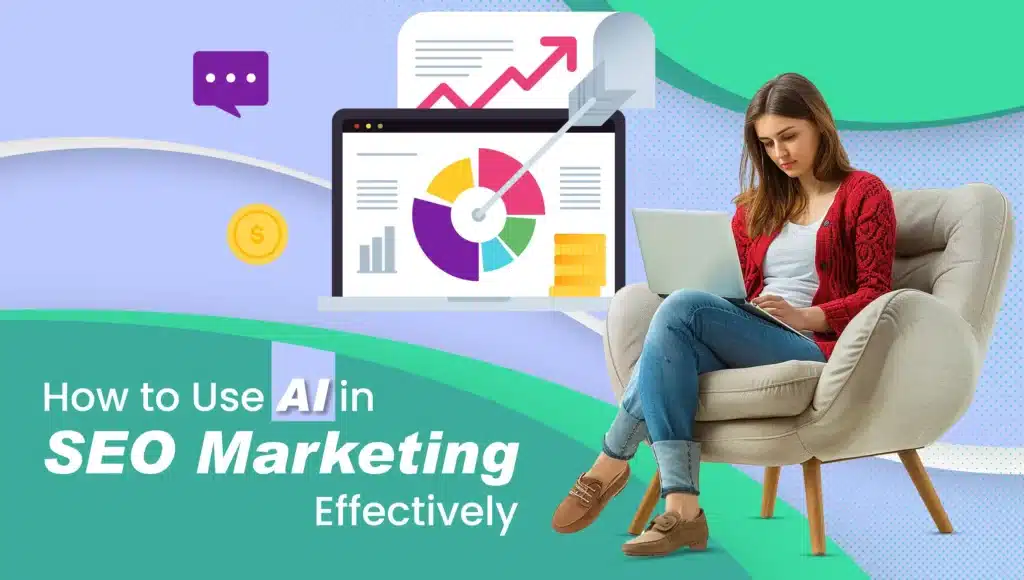In today’s digital ecosystem, leveraging artificial intelligence in SEO marketing is no longer optional—it’s essential. Businesses that fail to integrate AI-powered SEO tools and strategies risk falling behind competitors who capitalize on these advanced technologies to boost visibility, improve rankings, and optimize user engagement. According to recent studies, over 70% of marketers report that AI-driven SEO techniques deliver higher ROI and improved content performance. This article will guide you on how to use AI in SEO marketing effectively, providing a data-backed, actionable framework designed for brands targeting international audiences.
Current Trends in AI SEO Marketing
The SEO landscape has evolved drastically with AI’s emergence. Machine learning algorithms, natural language processing (NLP), and automation are now at the core of search engine algorithms, making traditional SEO tactics less effective when used alone. Here are some current trends shaping AI SEO:
- AI-Powered Content Creation: Tools like GPT-4 generate contextually relevant, high-quality content faster, assisting marketers in scaling content production without sacrificing quality.
- Voice Search Optimization: AI-driven voice assistants (e.g., Siri, Alexa) change user search behavior, emphasizing conversational and question-based queries.
- Automated SEO Audits: AI tools can instantly analyze websites for technical SEO issues, backlink profiles, and content gaps, providing prioritized recommendations.
- Predictive Analytics: AI predicts search trends and user intent shifts, allowing marketers to optimize content before trends peak proactively.
Recent data shows AI adoption in SEO marketing has increased by 55% since 2022, reflecting accelerated industry confidence in AI’s capabilities (Source: Search Engine Journal).
Actionable Framework: How to Use AI in SEO Marketing
Integrating AI into your SEO marketing requires a strategic, structured approach. Below is a step-by-step framework to harness AI effectively:
1. Define Clear SEO Objectives
Start by identifying key performance indicators (KPIs) aligned with your business goals. Examples include organic traffic growth, keyword ranking improvements, and conversion rate optimization.
2. Utilize AI for Keyword Research and Intent Analysis
- Leverage AI tools (e.g., SEMrush, Ahrefs with AI features) to discover high-impact keywords with transactional and informational intent.
- Use NLP-powered tools to analyze search intent clusters and user behavior patterns to inform content strategies.
3. Deploy AI-Driven Content Optimization
- Use AI content analyzers like Clearscope or Surfer SEO to optimize existing content for keyword density, readability, and semantic relevance.
- Employ AI writing assistants for scalable content creation, ensuring human editorial oversight for quality and brand voice consistency.
4. Automate Technical SEO Audits and Fixes
- Integrate AI audit platforms (e.g., DeepCrawl, Botify) to monitor site health continuously, flagging issues like broken links, crawl errors, and slow page speed.
- Prioritize AI-generated recommendations based on impact scores for efficient resource allocation.
5. Implement AI-Powered Link Building Strategies
- Use AI to identify authoritative backlink opportunities by analyzing competitor link profiles and domain relevance.
- Automate outreach campaigns with personalized messaging generated through AI for higher response rates.
6. Monitor and Adapt Using AI Analytics
- Use AI-driven analytics dashboards to track performance trends, user engagement, and conversion metrics in real-time.
- Apply predictive analytics to forecast SEO performance and adjust strategies proactively.
7. Optimize for Voice and Visual Search
- Adapt content and metadata for voice search queries with AI’s help in generating conversational keyword phrases.
- Leverage AI-powered image recognition and optimization tools to enhance visual search visibility.
Case Study: How a Global Brand Used AI in SEO Marketing to Boost Organic Traffic by 120%
A leading e-commerce company partnered with a digital agency to integrate AI into its SEO marketing efforts. The agency implemented an AI-driven content optimization platform combined with automated technical SEO audits and predictive analytics.
- Challenge: The brand struggled with stagnating organic traffic and inconsistent keyword rankings across multiple international markets.
- Solution: The agency used AI to identify keyword intent shifts in target regions, created optimized content at scale, and fixed technical issues proactively.
- Results: Within six months, organic traffic increased by 120%, bounce rates dropped by 18%, and the conversion rate improved by 30%.
This example demonstrates the tangible impact of strategically using AI in SEO marketing for scalable, measurable results.
Expert Insights on Using AI in SEO Marketing
Industry leaders emphasize AI’s transformational role:
- Rand Fishkin, Founder of SparkToro: “AI empowers marketers to analyze and understand vast data sets faster, uncovering insights that drive smarter SEO decisions.”
- Marie Haynes, SEO Consultant: “Automating routine SEO tasks with AI frees up time for strategic thinking and creative problem-solving.”
- Neil Patel, Digital Marketing Expert: “AI tools enable precision in content marketing that was impossible a few years ago — the key is to balance automation with human expertise.”
These expert opinions reinforce the need for blending AI with human oversight to maximize SEO marketing effectiveness.
Frequently Asked Questions (FAQs) About Using AI in SEO Marketing
Q1: What is AI SEO, and how does it differ from traditional SEO?
AI SEO leverages machine learning, natural language processing, and automation to analyze data and optimize websites, while traditional SEO relies mostly on manual analysis and rule-based tactics.
Q2: Can AI replace SEO professionals?
No. AI enhances SEO by automating repetitive tasks and providing data-driven insights, but strategic decisions and creative content still require human expertise.
Q3: What are the best AI tools for SEO marketing?
Popular AI SEO tools include SEMrush, Clearscope, Surfer SEO, DeepCrawl, Ahrefs (with AI features), and MarketMuse. Each offers specialized capabilities from keyword research to content optimization and technical audits.
Q4: How can AI improve keyword research?
AI analyzes large data sets to identify keyword trends, user intent, and semantic relationships, allowing marketers to target keywords that deliver higher engagement and conversions.
Q5: Is AI SEO effective for small businesses?
Absolutely. AI tools can level the playing field by providing small businesses with insights and automation previously accessible only to large enterprises.
Conclusion: Embrace AI to Elevate Your SEO Marketing Strategy
To stay competitive in an increasingly complex search environment, learning how to use AI in SEO marketing effectively is critical. By combining AI’s analytical power with human creativity and strategic oversight, brands can unlock unprecedented growth, improved search rankings, and enhanced user engagement.
Start integrating AI into your SEO workflows today. Explore Zellyo Digital’s SEO Strategy Services to leverage our expertise in AI-driven marketing. For end-to-end web and digital marketing solutions, visit our Web Development Services and Digital Marketing Services.


